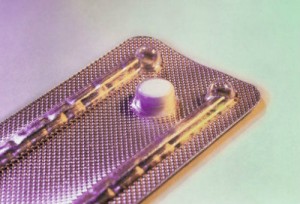Emergency Contraception: Questions and Answers
Emergency or «fire-alarm» contraception is a general term that includes a variety of contraceptive methods applied during the first hours after sexual intercourse to prevent unwanted pregnancy and reduce abortions frequency. During the entire period of the existence, mankind tries to find the best way to prevent undesired pregnancy after unprotected sexual intercourse.
Attitude to emergency contraception (EC) can be different and depends on our beliefs. However, many agree that abortion and its complications can cause significant harm to women’s health, which can be avoided by using a more secure method – emergency contraception. Fears and improper conclusions about EC method are primarily related to insufficient knowledge. Incorrect advice on this issue can aggravate stress, which influences woman’s state and incline her to abortion. This is particularly important for pharmacy staff who are often the first to advise women on contraception.
In the situation when a woman is confused, she needs professional and most correct advice. The most frequently asked questions will be answered in this article.
Things you wanted to know about emergency contraception

When is EC used?
EC should be recommended to women to protect against unwanted pregnancy in the following cases:
- after unprotected sexual intercourse, when the planned method of contraception for some reason was not used;
- barrier methods of contraception defect (for example, condom breakage);
- hormonal pills administration regimen violation (1 pill and more was missed);
- rape, especially teenagers.
What are types of EC?
As EC contraceptives there are used:
- combined estrogen-gestagenic drugs (combined oral contraceptives used according to special Yuzpe regimen);
- progestin;
- antiprogestins (Mifepristone);
- intrauterine devices (IUDs).
Is there a classification of EC pills on hormonal / non-hormonal?
Such classification does not exist. According to international ATX drugs classification of last revision (WHO, 2008), all pills are related to one category G – Medications, affecting the genitourinary system and sex hormones (estrogens, gestagen, their homologs, and antagonists). Mifepristone and Levonorgestrel are biologically active substances having steroid structure.
How effective is EC?
According to WHO multicenter study results, involving more than 4136 women, published in «The Lancet» journal, the effectiveness of 10 mg of Mifepristone and Levonorgestrel (2 doses of 0,75 mg every 12 hours or one dose of 1,5 mg) taken within 120 hours after unprotected sexual intercourse did not significantly differ.
However, EC means effectiveness depends on the time of their reception after unprotected sexual intercourse (within first 24 – 72 hours it is maximal).
Levonorgestrel can be used within up to 96 hours after unprotected sex, but it must be remembered that its efficiency is higher during first 72 hours, then it decreases.
How do EC drugs work?
These drugs interact with sex hormones receptors but in different ways. Levonorgestrel action is based on ovulation inhibition, sperm inactivation (immobilization), fertilization prevention, as well as changes in endometrium properties, thus preventing implantation. However, this medication is ineffective if implantation has already occurred, and does not cause abortion. Thus, this drug is not related to ambolics and does not interrupt already developed pregnancy.
What are contraindications to Levonorgestrel?
According to instructions for use, contraindications are individual hypersensitivity to components and age younger 16 years (since the experience of application among children is insufficient).
Administration of these drugs would be inappropriate if pregnancy has already occurred. The drug safety for EC purpose is confirmed by WHO and USA FDA (Food and Drug Administration), as well as many years of application experience.
Is Levonorgestrel safe if pregnancy has already occurred?
This drug is safe and will not harm mother and fetus health. This is particularly important if a woman was not sure she was pregnant and took this EC. In this case, the decision on pregnancy maintenance can be taken without worries.
Is EC contraindicated in adolescents?
Instruction to Levonorgestrel does not say that there is insufficient data on drug use by teenagers under 16 years old. Research in the group of women aged 13 to 16 years showed that pills for EC are more secure compared with possible consequences of abortion at this age.
How does Levonorgestrel affect menstrual cycle?
 Doctors much more fear irreversible consequences of abortion than possible reversible changes of the menstrual cycle. As studies results, involving more than four thousand women, show after Mifepristone and Levonorgestrel use more than 50% of subjects observed menstruation within 2 days relative to the expected date.
Doctors much more fear irreversible consequences of abortion than possible reversible changes of the menstrual cycle. As studies results, involving more than four thousand women, show after Mifepristone and Levonorgestrel use more than 50% of subjects observed menstruation within 2 days relative to the expected date.
The medicine can be taken on any day of menstrual cycle. After applying the drug menstruation, as a rule, occurs at a usual time and goes well; it does not require additional techniques to exclude pregnancy. Fears about menstrual disorders in the form of hemorrhages are often exaggerated.
Irregular hemorrhages caused by taking this medicine, disappear by themselves and are not a sign of any disease or pregnancy. In this case, we are talking about early menstruation and mechanism of drug specifics. Early menstruation indicates no pregnancy.
What are Levonorgestrel advantages?
Main advantages of the drug:
- first choice drug for EC;
- its efficacy and safety are proved by WHO studies;
- effective for 96 hours after unprotected intercourse (there is more time to make the right decision);
- can be applied at any day of a menstrual cycle;
- simplicity of use;
- can be used when a woman has not had time to take other means for EC in the period of 72 hours after intercourse;
- safety – does not cause teratogenic effect;
- allowed to use during lactation period;
- after a single dose at most women next menstruation occurs at the expected time.
Conclusion
- EC is primarily a method of «fire-alarm» contraception and an abortion alternative and its complications.
- After EC woman should be advised planned methods of contraception.
- According to existing drugs classifications, there are no non-hormonal methods of EC.
- Levonorgestrel single application mode from a practical point of view has an advantage over a double dose of 0,75 mg use.
In particular, a single dose of 1,5 mg use has high efficacy and good safety profile. According to WHO data, increasing a dosage to 1,5 mg does not increase adverse effects possibility in comparison with a dosage of 0,75 mg.







